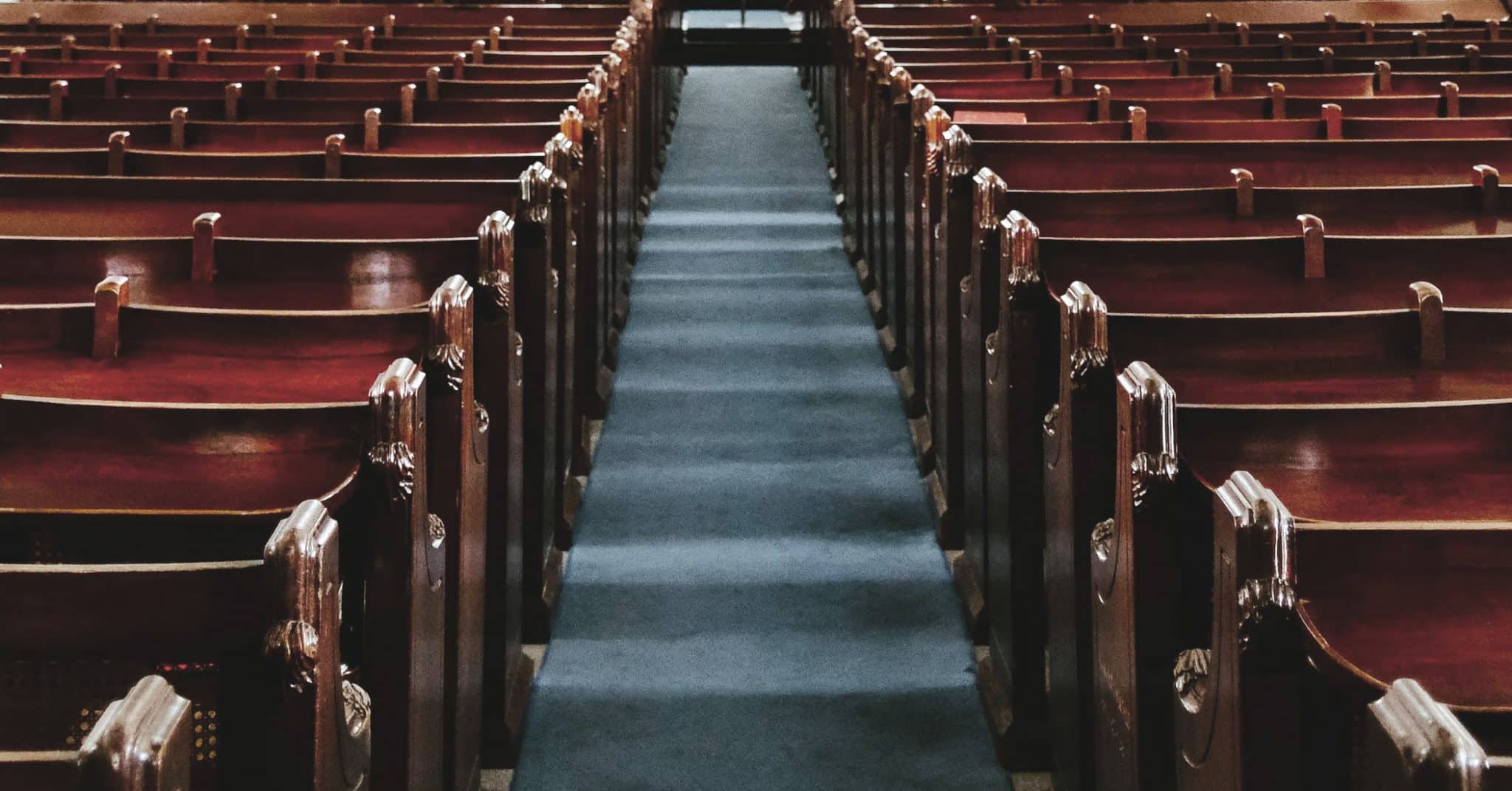How Christians have fared during the Circuit-Breaker: Check-In Survey findings (Part 1)
by Pastor Edric Sng // May 18, 2020, 5:33 pm

Stock photo: Victor He/Unsplash.com
Yesterday (May 17) marked Day 40 of the coronavirus-imposed Circuit-Breaker in Singapore. Biblically speaking, we know the significance of the number 40 – it marks a period of refining and reshaping. Have we come out better for this season?
To find out, we launched a Circuit-Breaker Check-In Survey, first published on Monday, May 11, 2020. In the week since then, we’ve received more than 1,600 responses. The survey was conducted entirely on the digital space, through SurveyMonkey links sent out via Salt&Light and Thir.st social media, with the link also forwarded by some pastors to their members.
COMPLETE THE CHECK-IN SURVEY HERE
The intent of the survey was to get an insight into the emotional and spiritual state of Christians in Singapore. We asked about stress and anxiety levels, ability to cope financially, and how you felt your church was coping with this new normal.
TL;DR – What we learnt from the survey, in summary:
• Many feel their walk with God has improved during the Circuit-Breaker. However, more respondents said their emotional state is now slightly or much worse than before, compared to those who said they are faring slightly or much better. (See Overall Findings)
• More than a quarter said they are somewhat or extremely anxious, while a small minority of respondents said they were struggling to cope financially at the moment. (See Overall Findings)
• The age factor: Younger adults are more likely to say this season has negatively impacted their walk with God, emotional state and anxiety levels. (See Deep Dive #1)
• Students and the unemployed are more negatively impacted than those of other employment status. (See Deep Dive #2)
• Being in a cell group helps – though not as much as you’d think. (See Deep Dive #3)
• Your walk with God is the biggest factor in how well you are coping with the situation. (See The Big Conclusion)
(This is the first in a 3-part series of articles. Read Part 2: 5 lessons for Church leaders and Part 3: Will Christians still visit online services beyond the Church-Breaker?)
Before the analysis, some disclaimers and asterisks:
A. These survey results should not be taken as being demographically representative of the whole body of Christ. For that to happen, we would need a properly representative cross-section of Christendom – by age, gender, denominations, and so on. Nonetheless, with a sizeable quantum of respondents, you can view the findings as a snapshot of how many digitally-savvy Christians are coping with the situation.
B. It should not be assumed that every body of believers would reflect similar views. Every church and denomination has its own unique flavours and traditions. Instead, take this as a big picture view of responses, and consider how you might gauge your own members to see how you measure up.
C. This survey is meant to quantify how Christians have fared in this season – not to ponder the reasons nor give suggestions on how to address issues. But we hope the findings can spark some constructive conversations of what can be done by Church leaders and members to help the situation.
D. Finally, none of the results should be read as an accusation or indictment of any one Church or Christian in Singapore. We are all works in progress, in the process of becoming more Christlike, by the grace of God. But if this surfaces learning points and areas for improvement – all the better!
Who were the respondents?
About 56% of respondents were 45 or older, while 18% were 25 and below. Three-quarters were female:
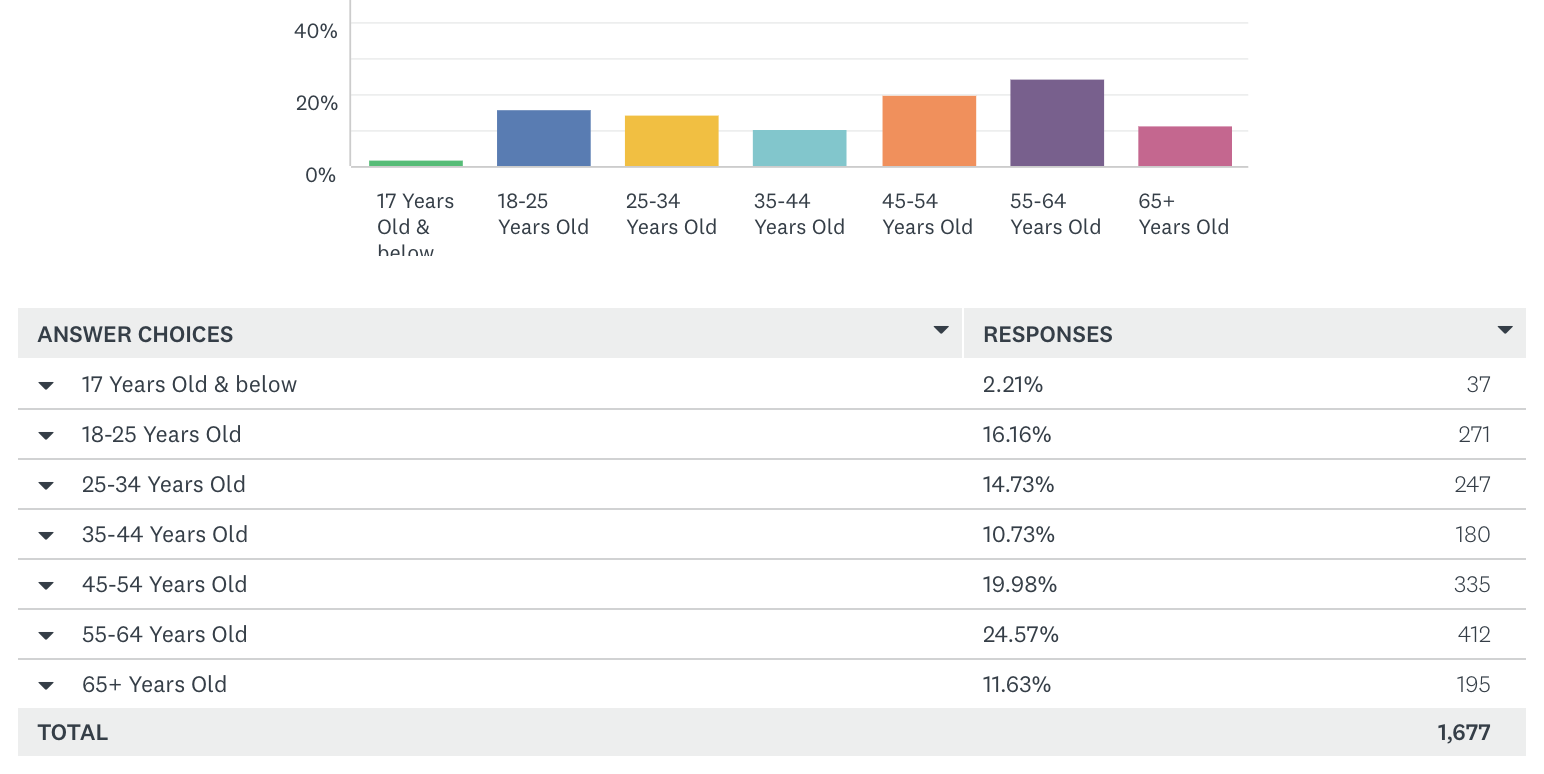
Almost exactly half (50.75%) were not parents. About 14% had children aged 12 or below:
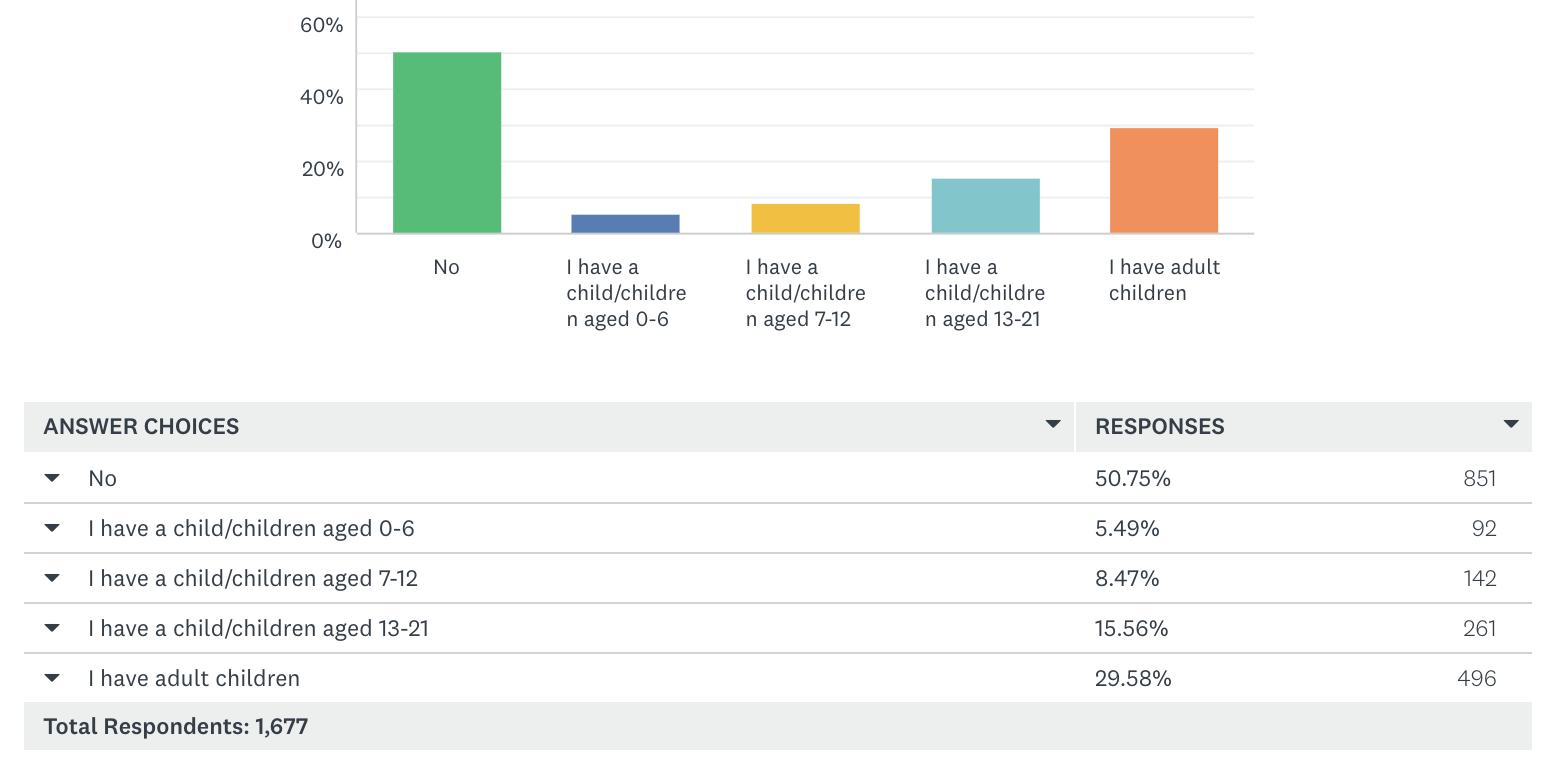
Almost half (47.17%) described themselves as salaried workers:
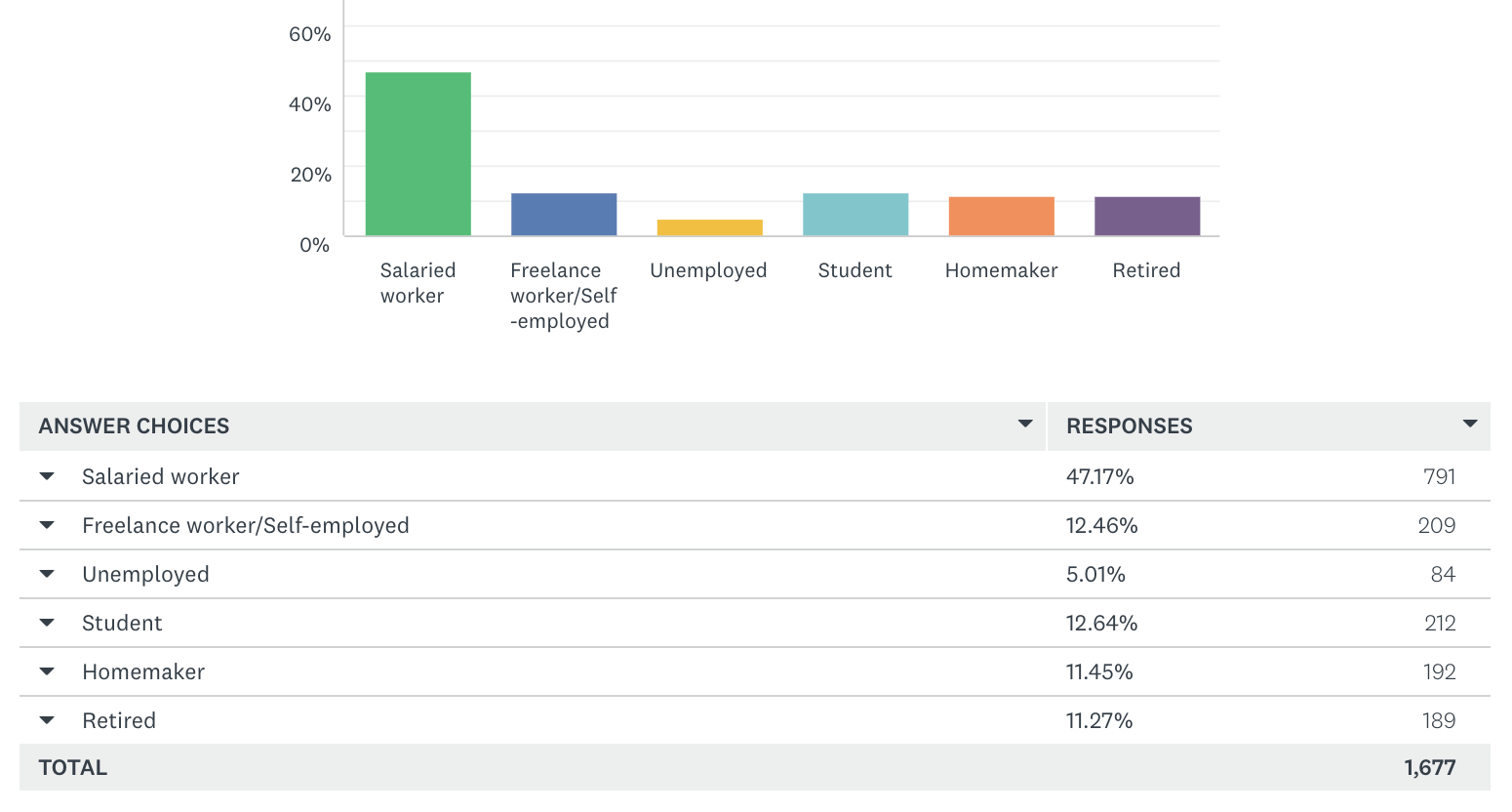
Less than 10% were relatively new Christians (5 years or less), with almost 60% identifying as long-term Christians (21 or more years). A large majority – 84.44% – said they were part of a cell group:
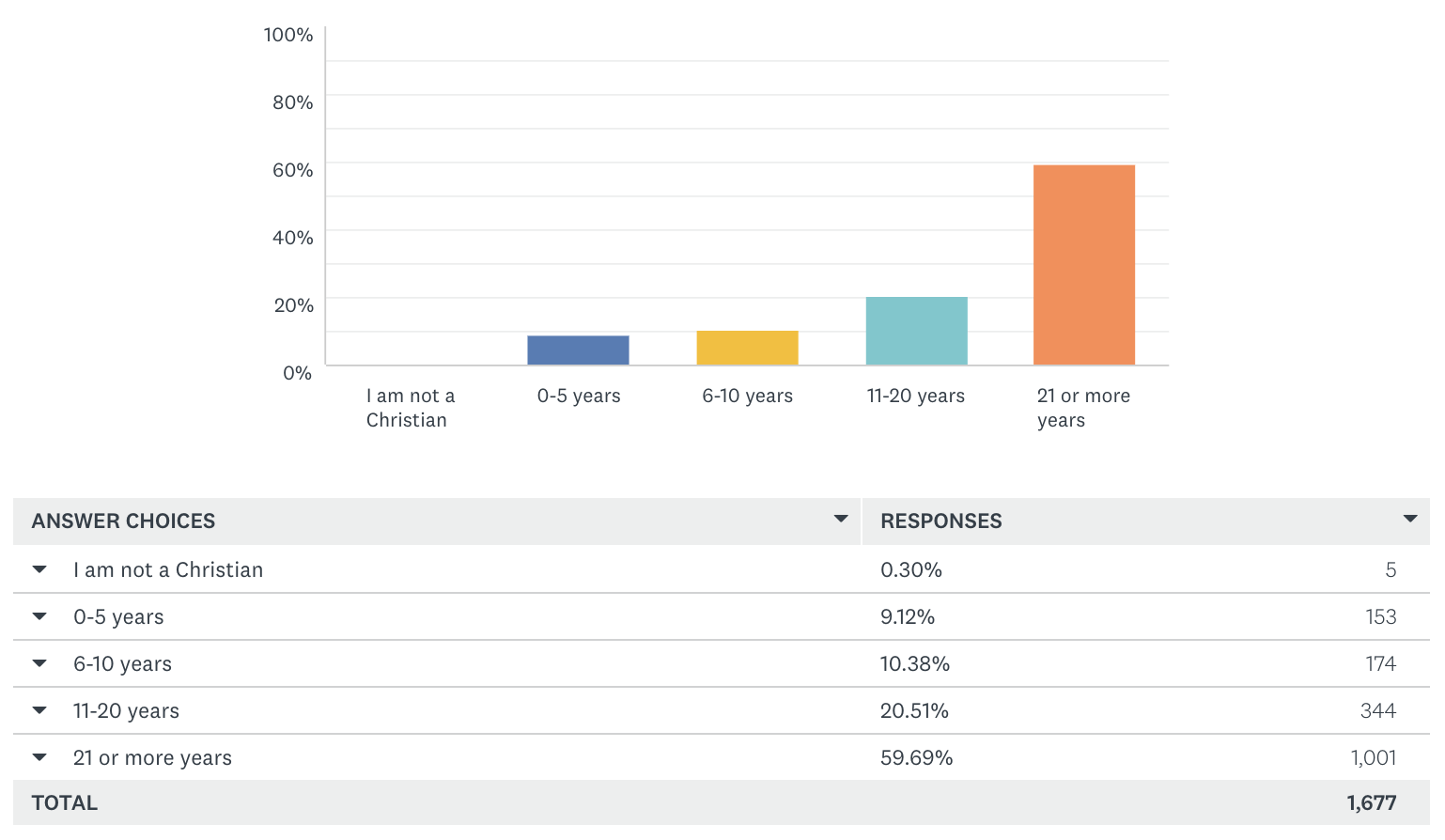
Overall findings
Many thought that the current Circuit-Breaker situation has actually brought them closer to God. More than half (55.13%) said their walk with God is slightly or much better since the COVID-19 situation escalated. Conversely, 15.98% said their walk with God is now slightly or much worse:
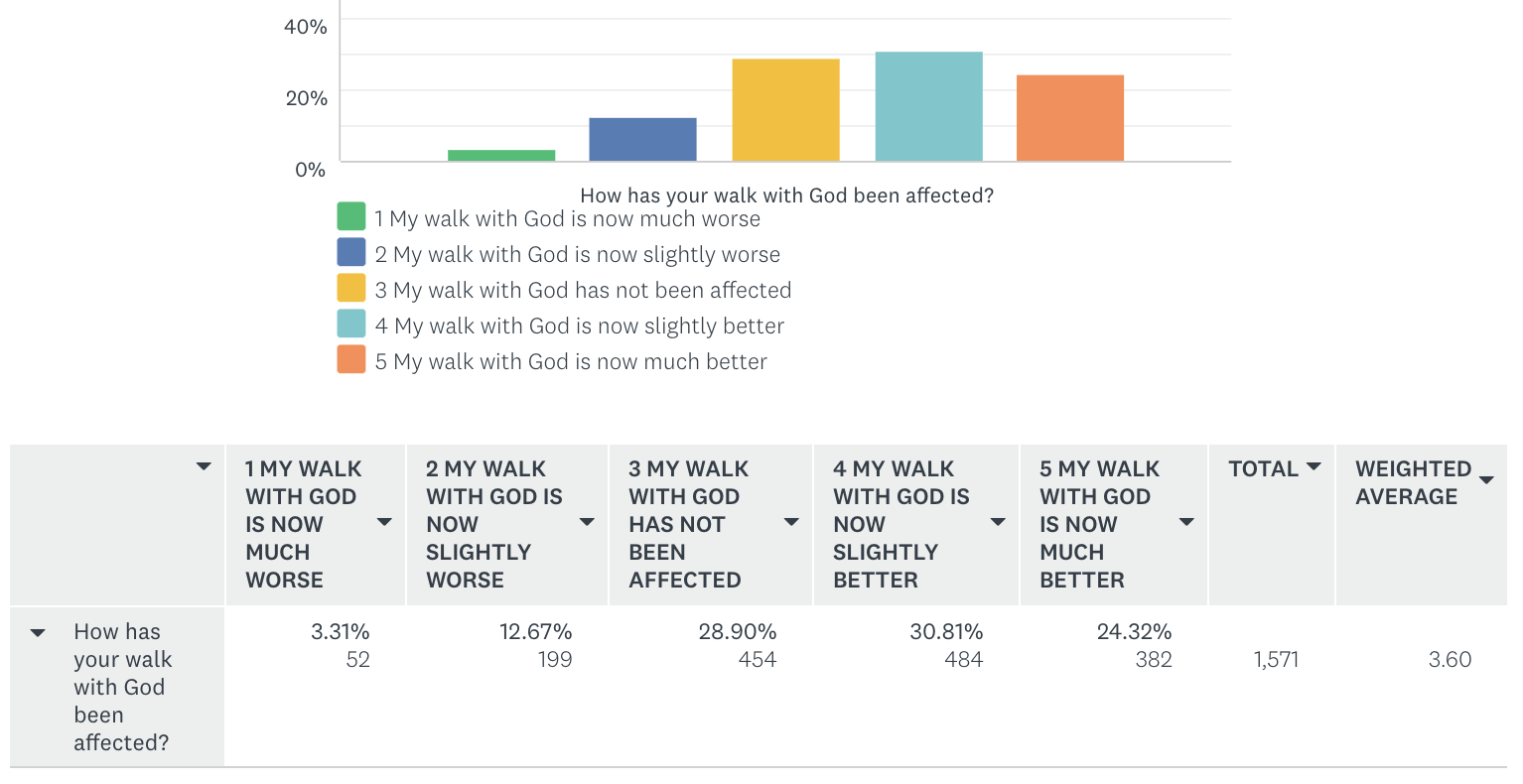
While 2 in 5 said their emotional state has not been affected during this season, slightly more (30.74%) said their emotional state is now slightly or much worse than before, compared to 27.69% who said they are faring slightly or much better:
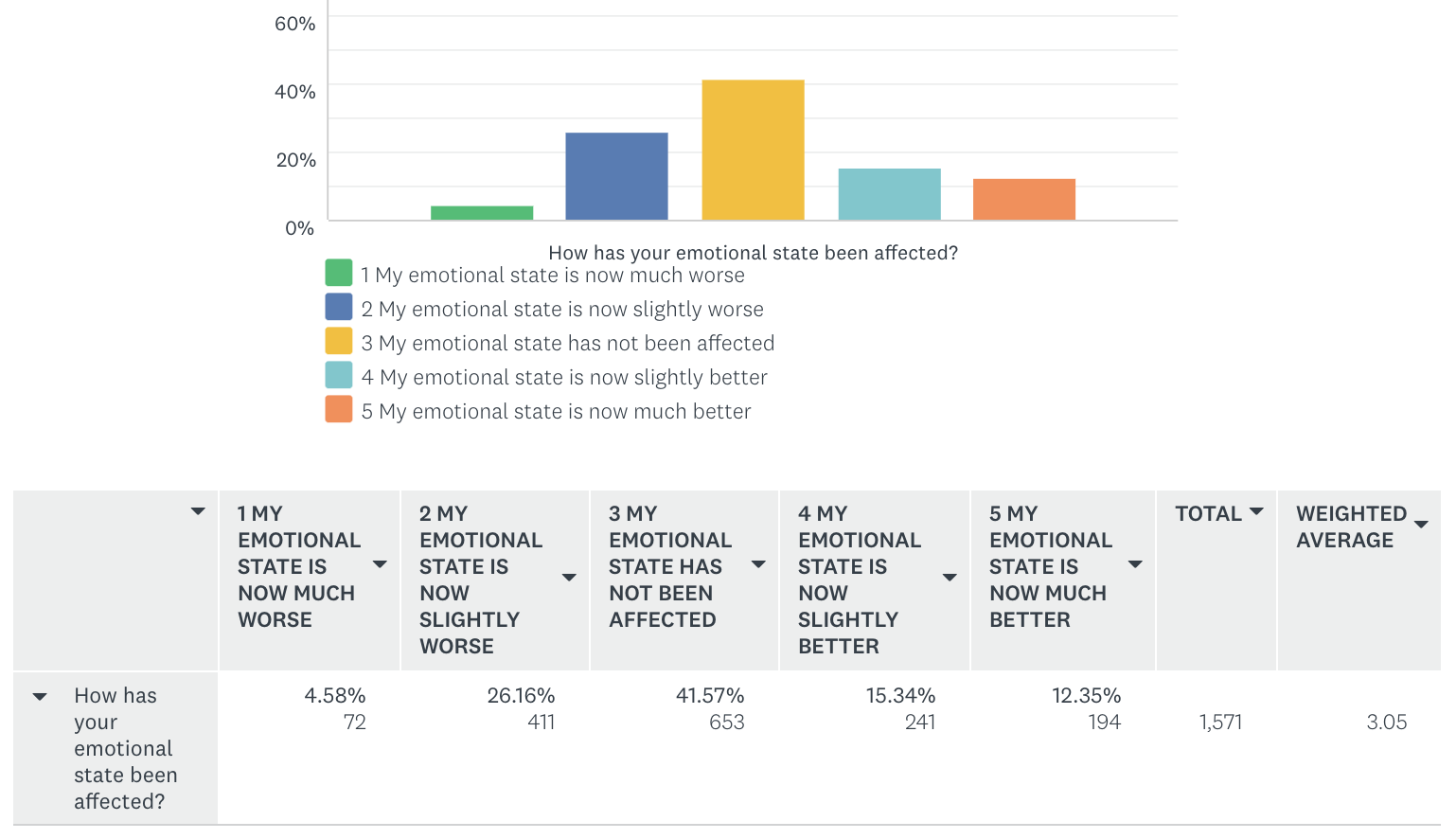
While more than half (50.99%) said they are not very anxious or not anxious at all during this season, a not-insignificant number – 26.92% – said they are somewhat or extremely anxious:
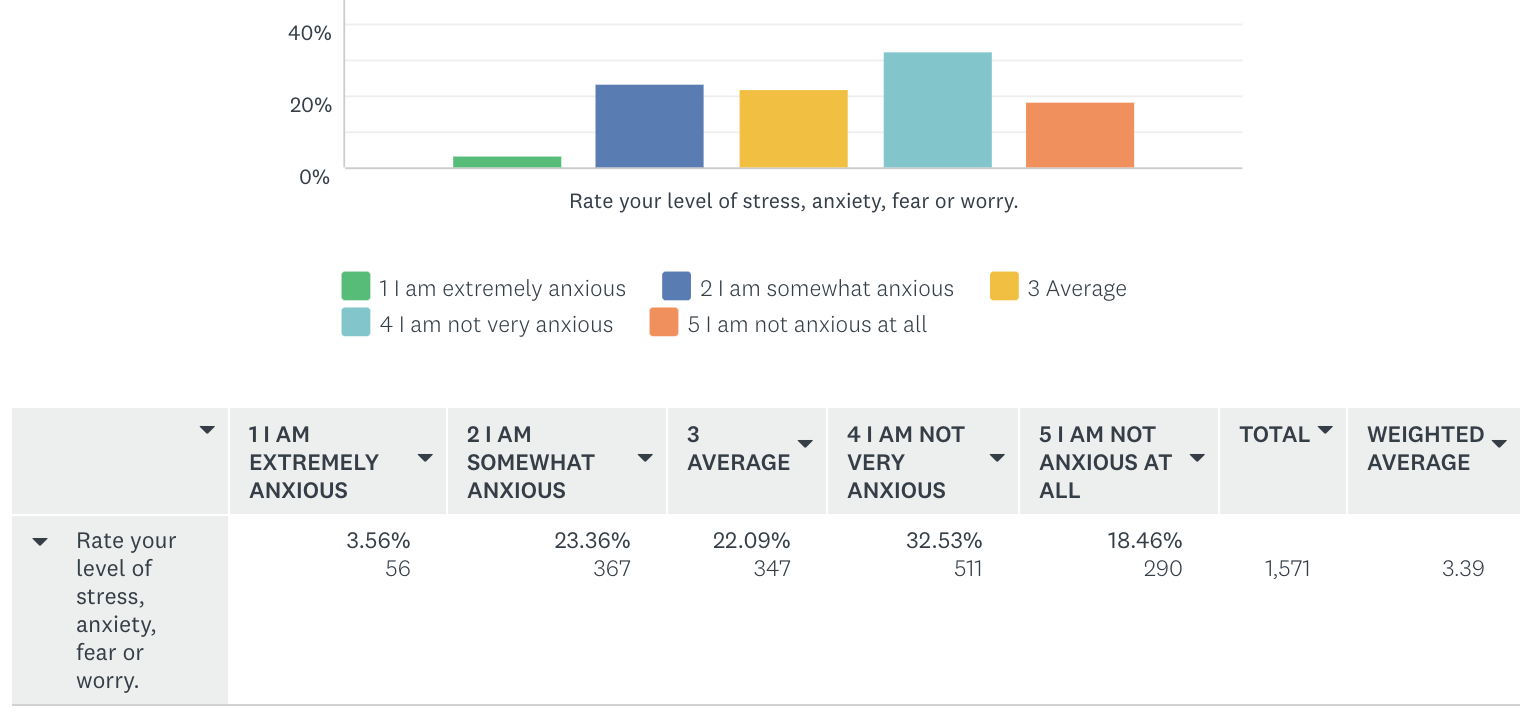
While most said they should be able to cope financially with the economic impact of the COVID-19 situation, a small minority (6.49%) said they were struggling:
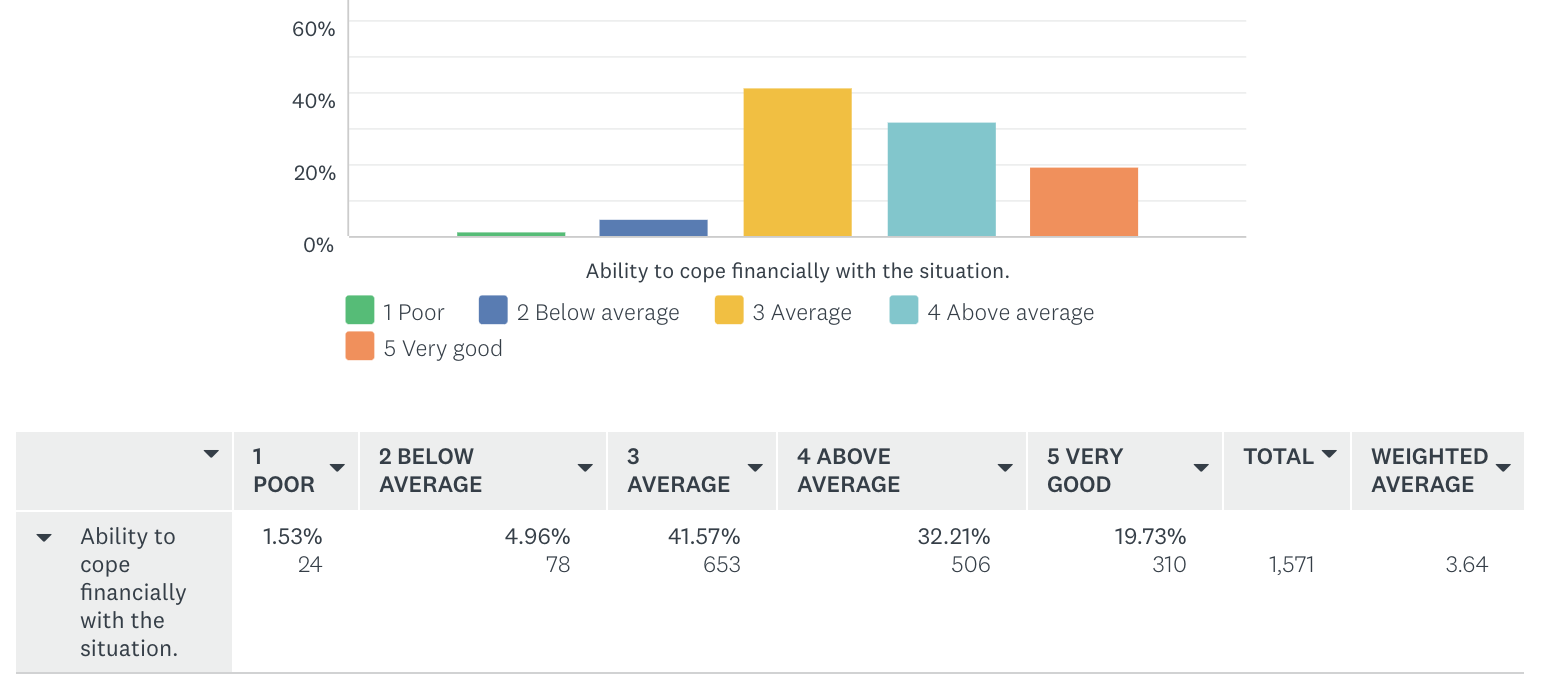
Deep dive #1: The younger you are, the more affected you are
The survey findings show a clear, linear correlation between a respondent’s age and how the COVID-19 situation has affected his or her walk with God and emotional state.
The 18-25 year old age group are most likely to say their walk with God is now slightly or much worse amid the Circuit-Breaker, with each older age group faring incrementally better. Those 65 and above generally say their walk with God is much better now, with a weighted average of 3.97:
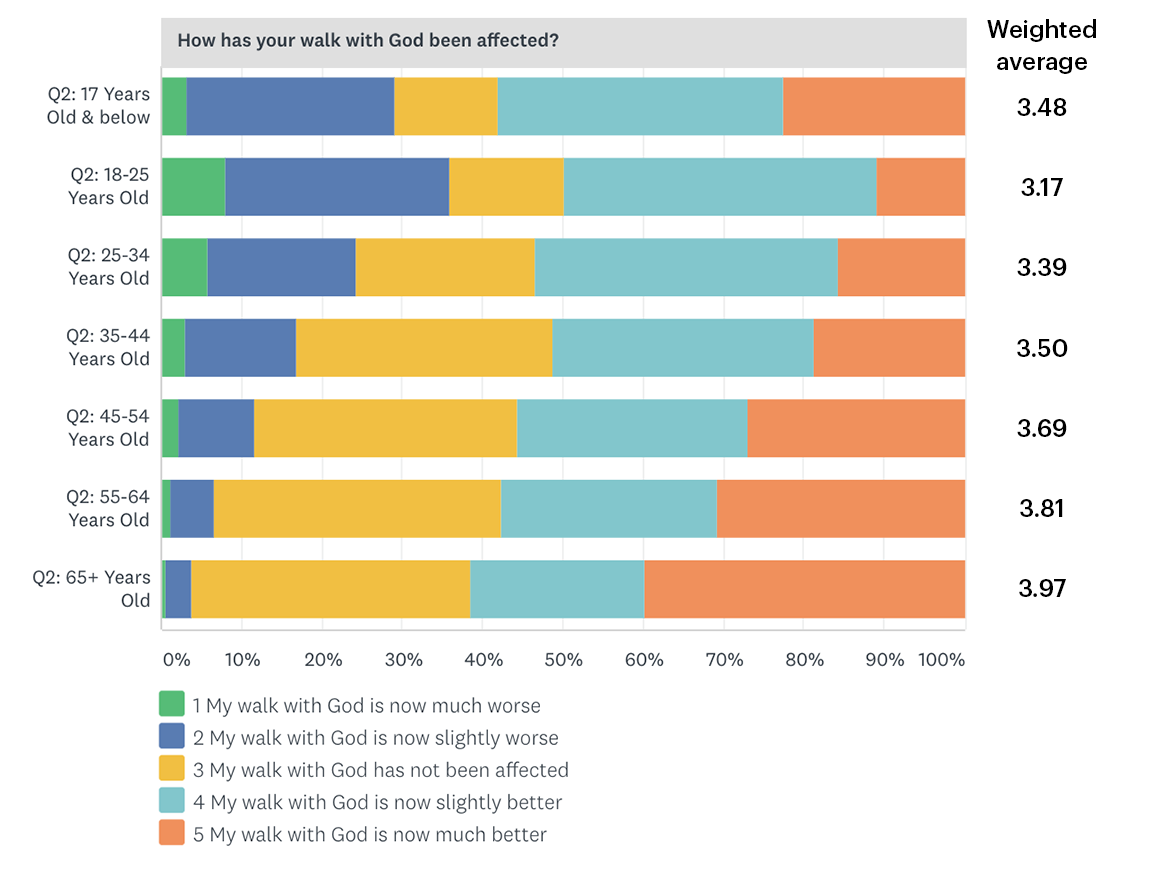
There is a similar trend seen in how their emotional state has been affected by the ongoing situation. Those 34 and below are more likely to say their emotional state is now slightly or much worse than before, with those age groups showing a weighted average below the 3 mark (not affected):
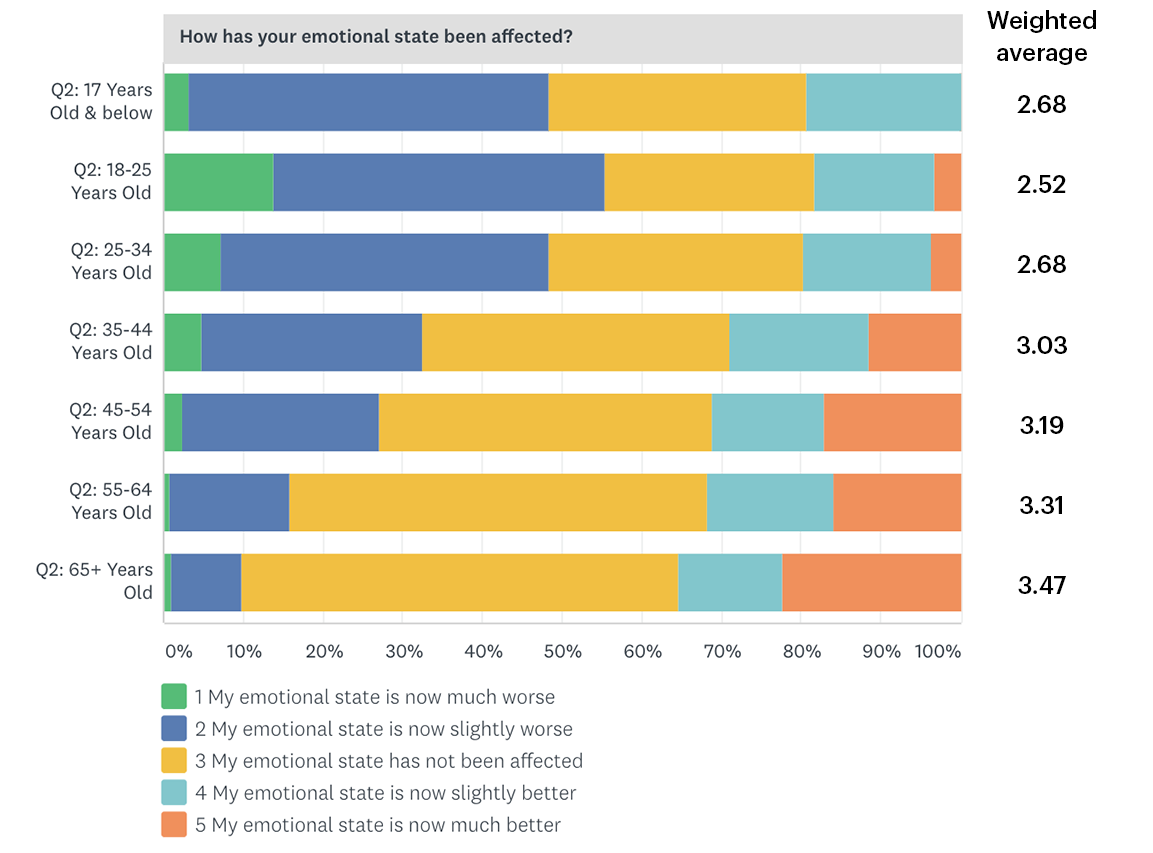
Mirroring the above findings, the younger the respondent, the more likely you are to say you are feeling some degree of stress, fear, anxiety or worry. This time, those 17 and below had the lowest weighted average, with 51.16% saying they are “somewhat anxious” about the situation:

Finally, the trend was repeated in terms of respondents’ view on their ability to cope financially with the situation. Those aged 44 and below rated themselves a relatively lower weighted average on this count:
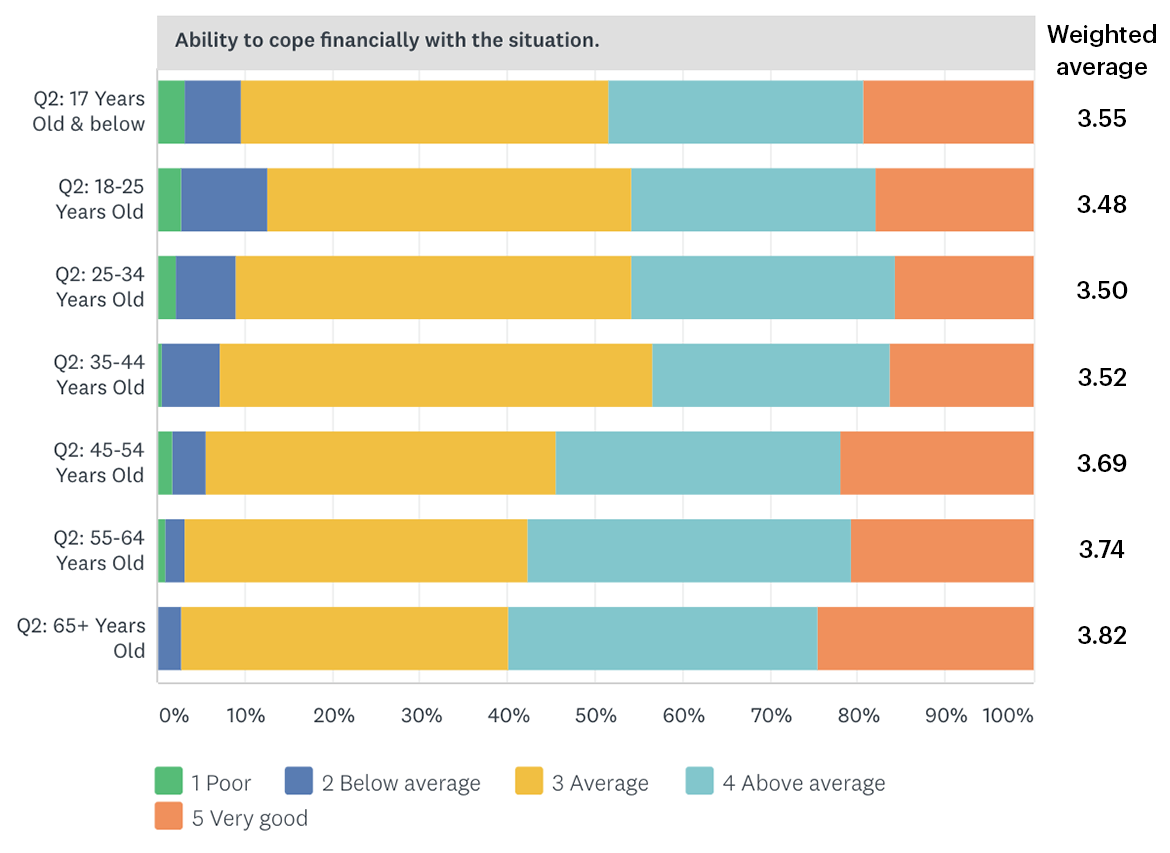
Deep dive #2: Students & Unemployed more likely to be affected
When comparing survey results across employment status, in general, those who identifed as students. Surprisingly, those identifying as freelance workers – ostensibly more vulnerable to economic downturn – fared relatively well on most fronts.
Students (weighted average of 3.52), salaried workers (3.52) and the unemployed (3.59) scored relatively lower when asked how the situation had impacted their walk with God.
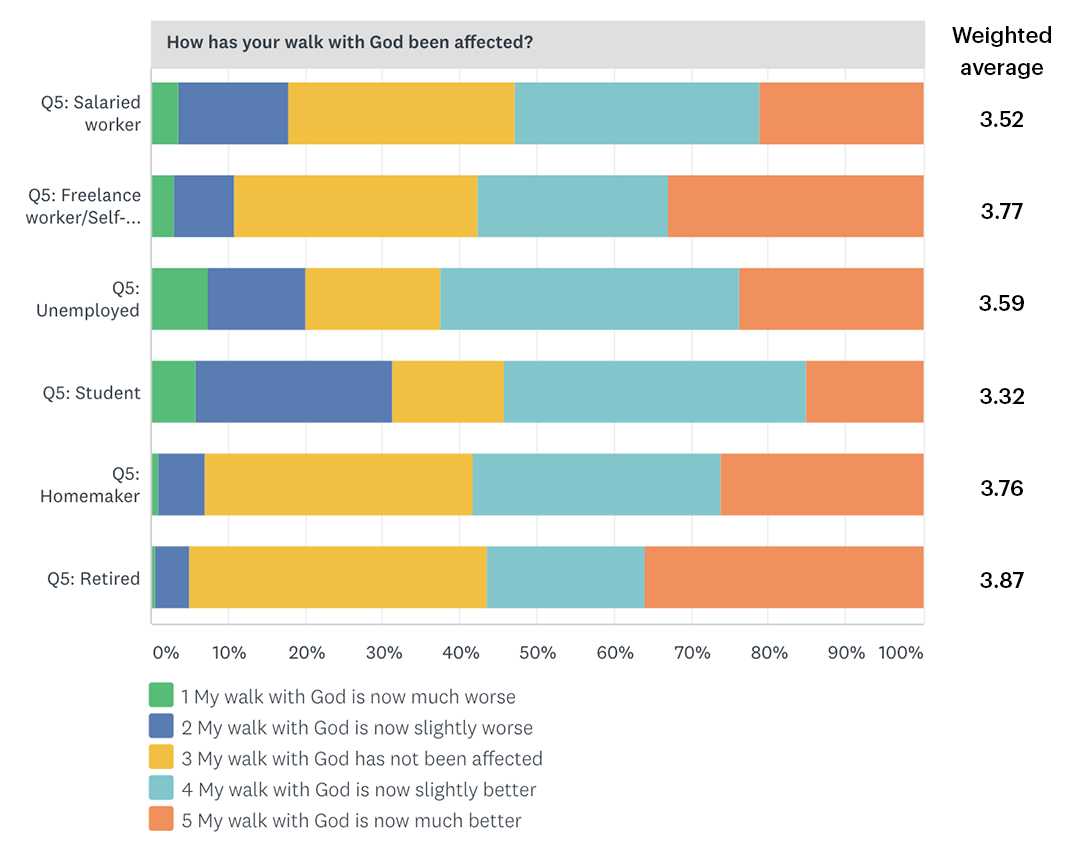
Students (2.62) and the unemployed (2.88) also rated below average (3) in terms of how they have been emotionally impacted by the Circuit-Breaker (with a very similar findings on their level of stress/anxiety):
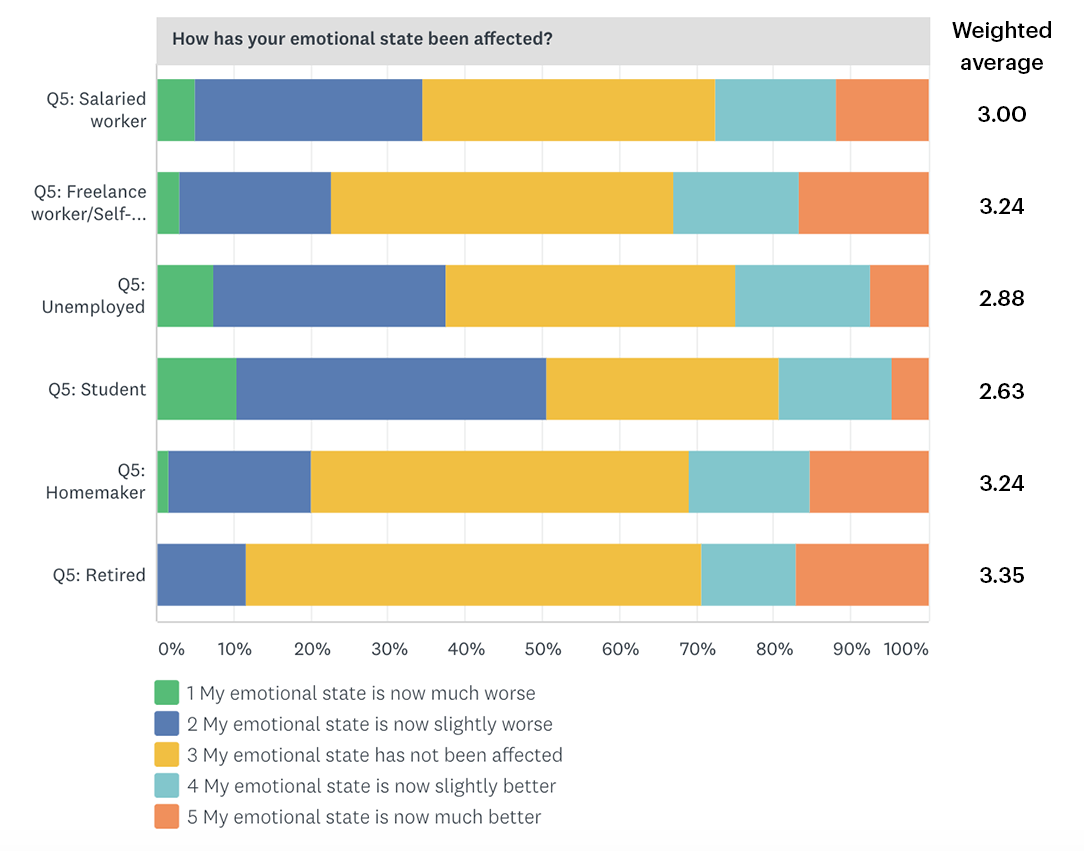
Finally, do help look out for the unemployed among us. Their ability to cope financially with the situation (3.06), which has made job-searching much more difficult, was by some margin the lowest of the various groups:
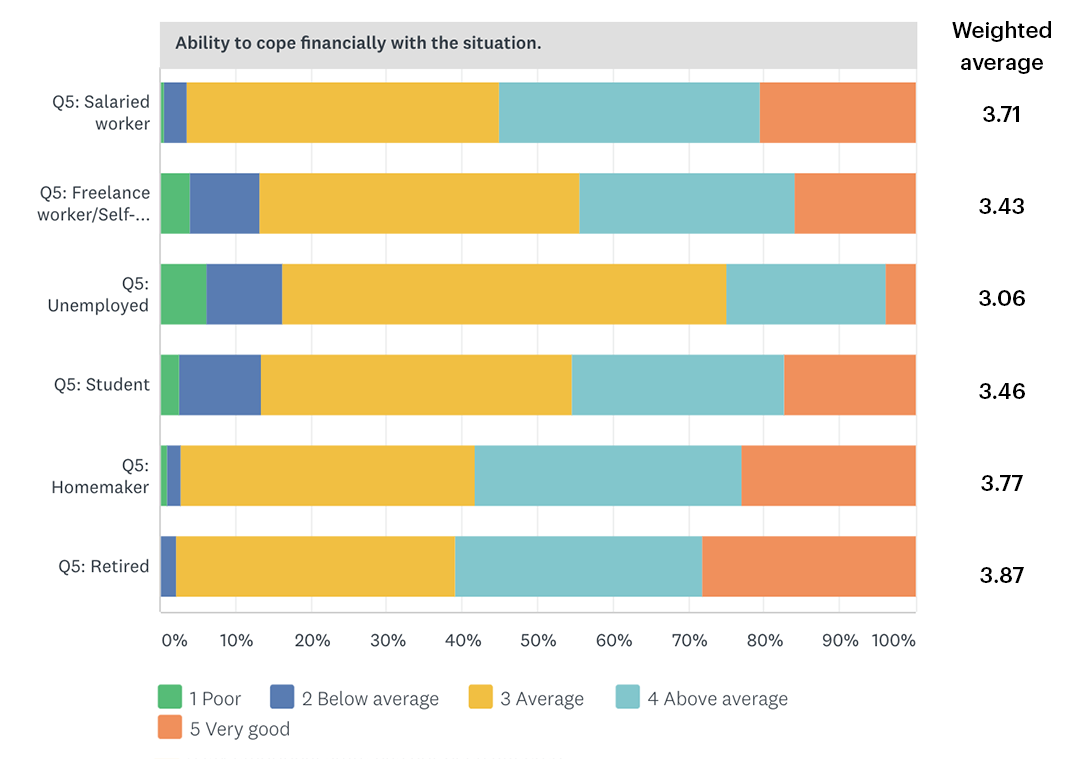
Deep dive #3: Being in a Cell Group makes a bit of a difference
For almost every question, those who are in a cell group rated themselves relatively (though not significantly) better in the following questions, where a higher score denotes a more positive response:
Current walk with God
Celled: 3.54 vs Uncelled: 3.40
How COVID-19 has affected your walk with God
Celled: 3.61 vs Uncelled: 3.53 (higher = less affected)
Current emotional state
Celled: 3.49 vs Uncelled: 3.43
How COVID-19 has affected your emotional state
Celled: 3.05 vs Uncelled: 3.01 (higher = less affected)
Stress/anxiety/fear/worry level
Celled: 3.40 vs Uncelled: 3.33 (higher = less anxious)
You’ll note higher scores – but only marginally so in most cases. We’d love to hear your hypotheses on this one.
The Big Conclusion: Your walk with God is the biggest factor of all
So far, in the above findings, we’ve analysed respondents’ responses (emotional state, anxiety levels) against a factual factor (age, employment status, cell group). But by far the most biggest takeaway from the survey is how someone’s walk with God has a significant, statistically provable impact on how he/she responds to circumstances.
In this chart below, we’ve mapped out how respondents rated their walk with God (vertical axis, with 1 being worst and 5 being best) against their current emotional state (horizontal axis, again with 1 being worst and 5 being best).
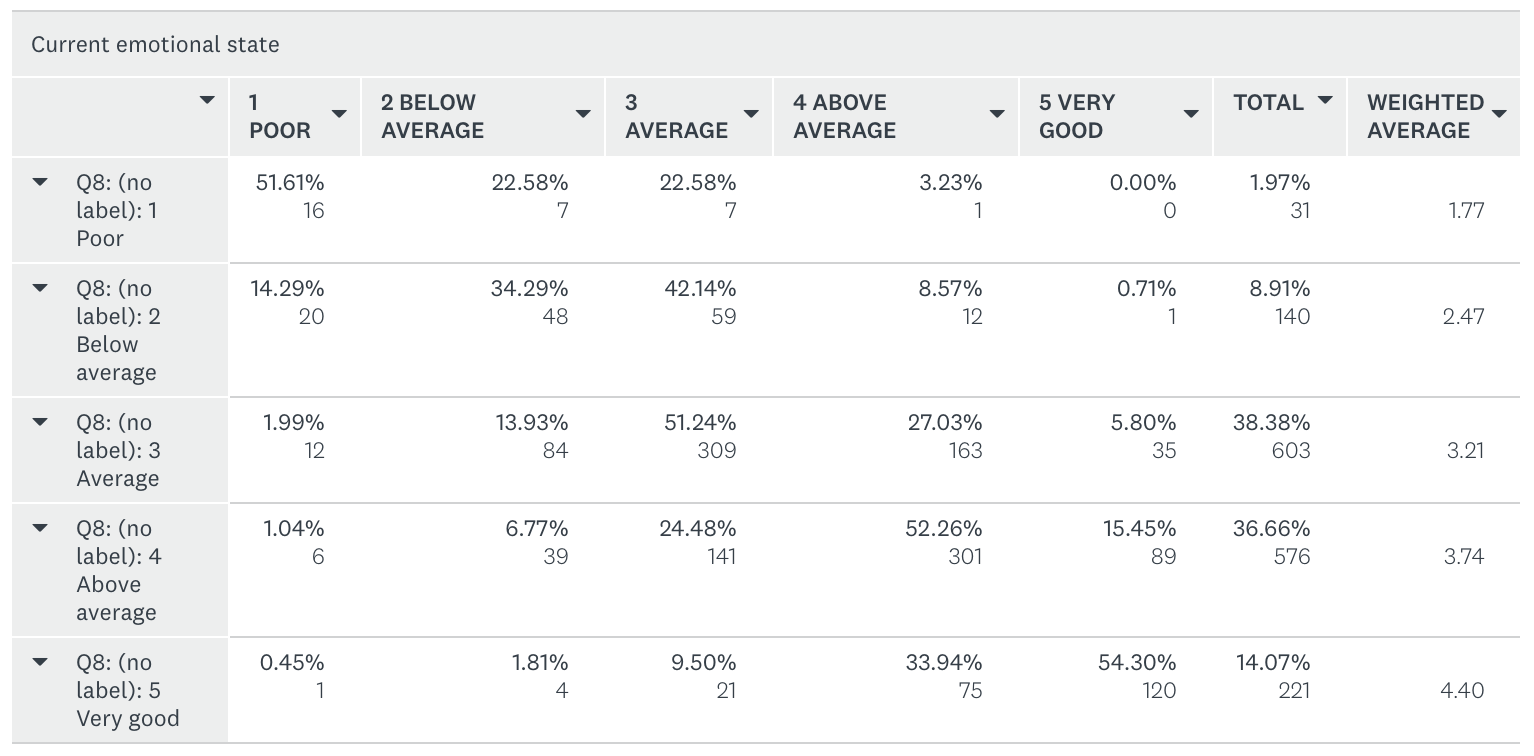
You can see an almost direct correlation. If your walk with God is a 1 (Poor), your emotional state averages a 1.77 (Poor-Below Average). This linear map goes all the way up: If your walk with God is a 5 (Very Good), your emotional state is a 4.40 (Above-Average-Very Good).
Here’s another example, mapping out a respondents’ walk with God (vertical axis) against their current level of stress, anxiety, fear or worry (horizontal axis, where a lower score denotes greater levels of anxiety).
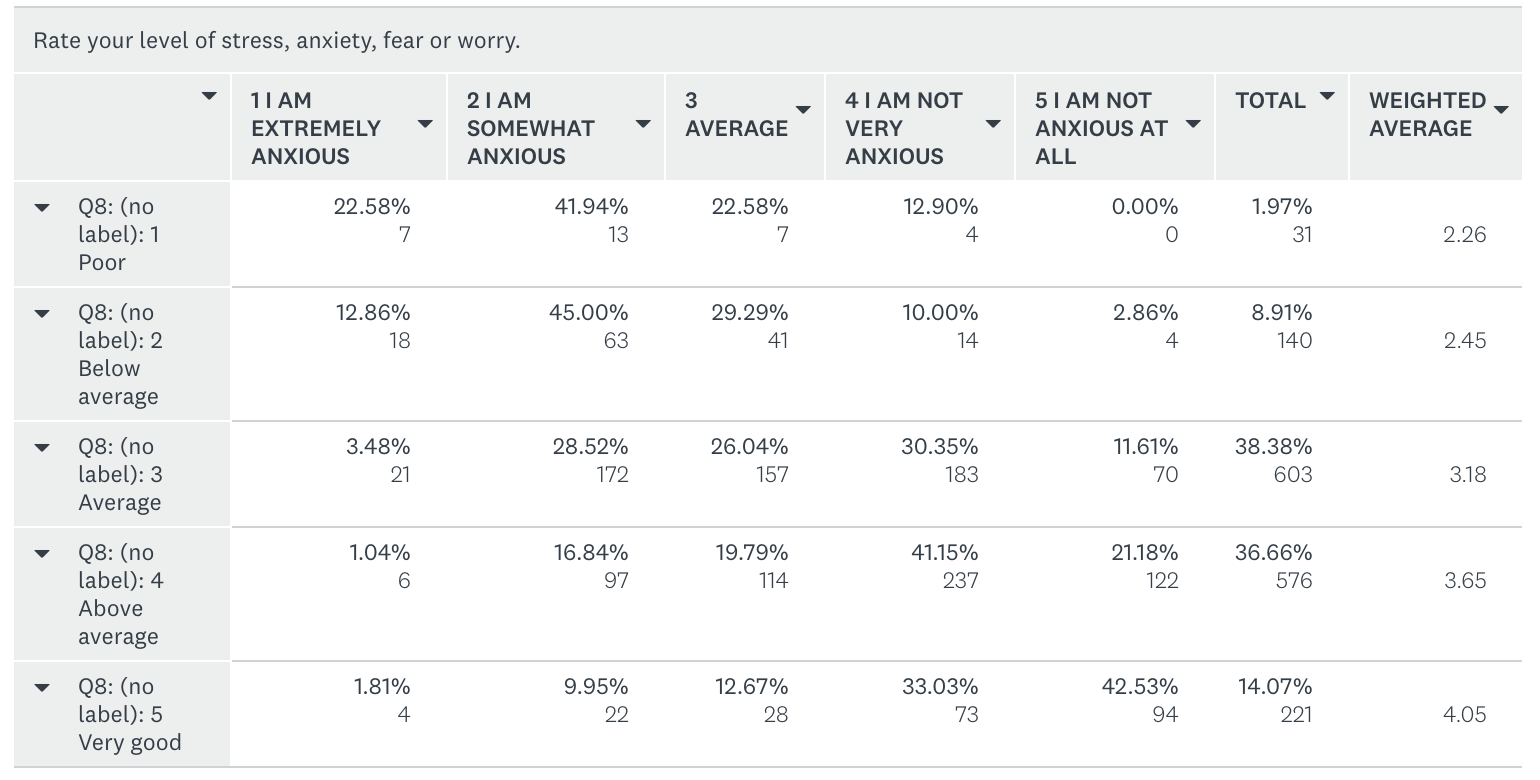
Once again – you see the correlation. Those who said their walk with God is poorer were more likely to be extremely or somewhat anxious.
As one final example, we see in this chart how a person’s walk with God (vertical axis) can even impact whether the current situation will further impact his or her walk with God (horizontal axis – with a higher score meaning their walk with God has improved during this window of isolation).
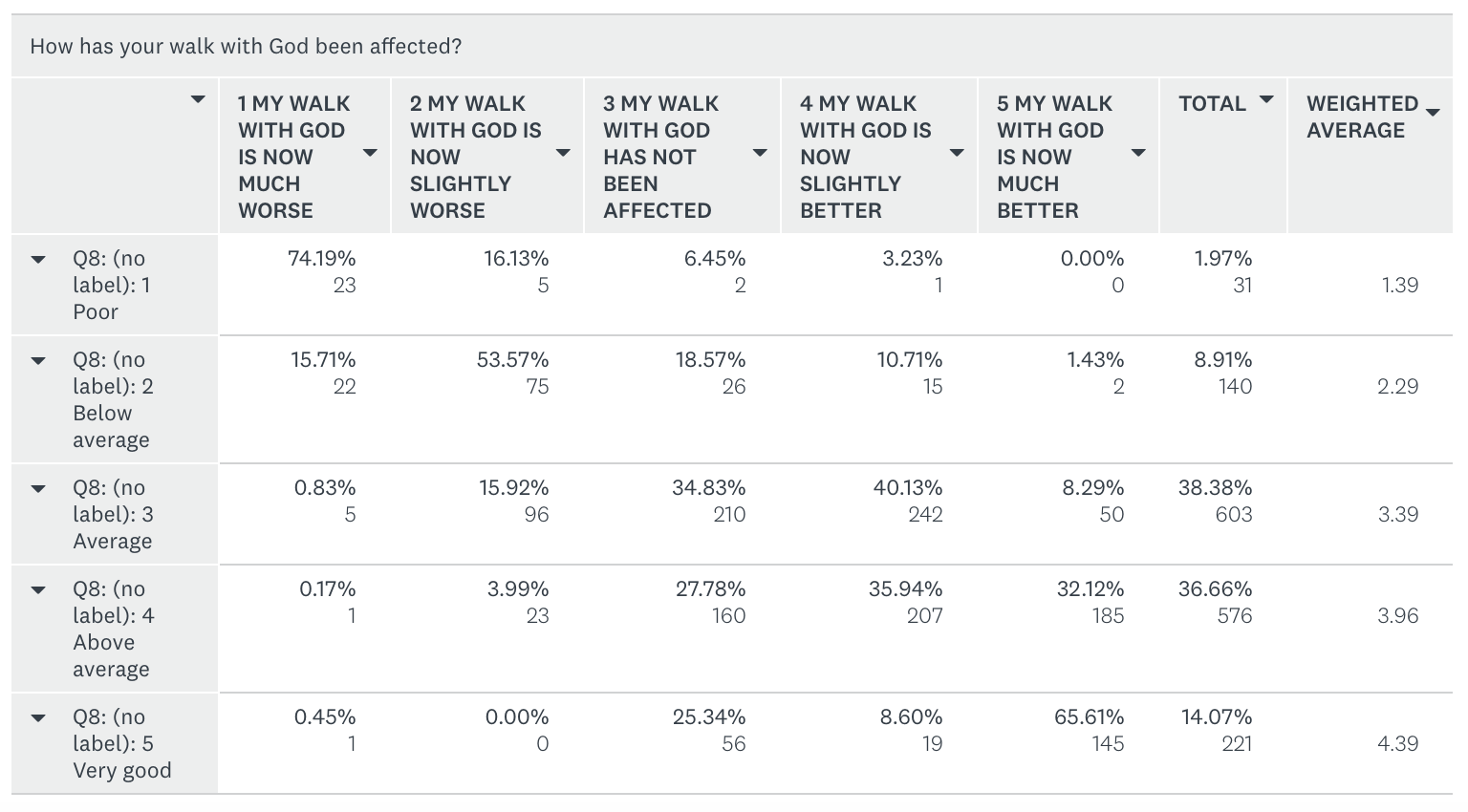
Of course, we know that just because some people rated their walk with God as a 4-5, it doesn’t always correspond to their emotional state or levels of anxiety, which may be a 1-2. This may apply to some of you out there reading this – you are doing great with God, but somehow you face some emotional or financial issues. This is no condemnation; we understand that everyone is on a different journey, and that somehow the circumstances around you don’t always correlate to your walk with God. Keep the faith.
What allows a person to better cope with this crisis – and any crisis to come, whether personal, local or global – is the strength of our walk with God.
But what we can conclude is that for the most part, with a strong degree of statistical correlation, the key factor determining how positively a person is responding to this unprecedented situation is not age, employment status, or any other demographic factor.
What allows a person to better cope with this crisis – and any crisis to come, whether personal, local or global – is the strength of our walk with God.
This is a Scriptural truth borne out by statistical proof. Whether from John 16:33 (“In this world you will have trouble. But take heart! I have overcome the world”) or Philippians 4:6-7 (“The peace of God, which transcends all understanding, will guard your hearts and your minds in Christ Jesus”), Scripture is consistently clear about this: Walk right with God, and the storms will still blow all around you – but you can find calm amid the storm.
Stay safe? Home is a good place to start. But even more so, seek refuge in God Most High.
This is the first in a 3-part series of articles. Read Part 2: 5 lessons for Church leaders and Part 3: Will Christians still visit online services beyond the Church-Breaker?
We are an independent, non-profit organisation that relies on the generosity of our readers, such as yourself, to continue serving the kingdom. Every dollar donated goes directly back into our editorial coverage.
Would you consider partnering with us in our kingdom work by supporting us financially, either as a one-off donation, or a recurring pledge?
Support Salt&Light

